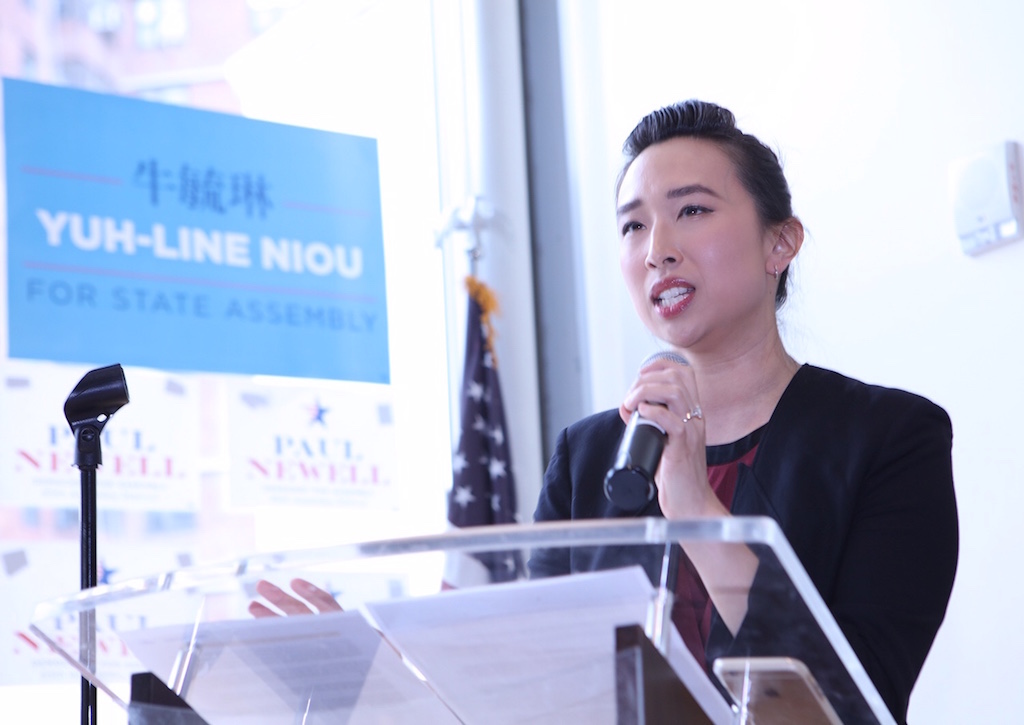What a difference having a Democrat-controlled state Senate has meant. And nowhere has that been more apparent than in the sweeping and historic win for tenants this past Friday.
With votes of approval by the state Senate and Assembly followed by the signing by Governor Andrew Cuomo of “The Housing Stability and Tenant Protection Act of 2019,” vacancy decontrol is now a thing of the past.
It’s a huge victory for affordability — and a massive relief for tenants in 1 million households in rent-regulated apartments across New York City.

Under vacancy decontrol, if an empty apartment’s rent was roughly $2,775 a month, it could be taken out of the rent-regulation program and turned market rate. That, unfortunately, led to bad-actor landlords using sundry harassment techniques to push out tenants, so that the owners could keep boosting the rents to reach the decontrol threshold.
Harassment, of course, can take different forms, from subtle to blatant — ranging from lack of heat and hot water to disruptive, noisy, dusty, unhealthy interior gut rehabs of buildings.
Obviously, not all landlords are bad actors. But, in effect, by now making rent regulation permanent, it takes away a huge incentive — and temptation — for landlords to harass tenants.
Since vacancy decontrol was enacted in 1994, it’s believed that more than 160,000 apartments — and 62 percent of all units deregulated during that time — lost their rent-protected status due to vacancy decontrol. So, obviously, this reform will go a long way toward stopping the drain of the city’s stock of affordable-to-middle class housing.
Housing activists even had ambitiously hoped that some of those “lost” units could now be restored to rent regulation, but it was apparently too far a reach even for this sweeping legislation. Similarly, an effort to get buildings with fewer than six units into the rent-regulation program also failed.
However, rents will also be kept down because the so-called vacancy bonus has now also been repealed — meaning landlords can no longer jack up an apartment’s rent by as much as 20 percent after a tenant vacates.
Also now significantly reduced is landlords’ ability to pass along costs of major capital improvements (M.C.I.’s) and individual apartment improvements (I.A.I.’s) to tenants.
Owners will now also be restricted to taking only one unit for “personal use” and must use it as their primary residence.
Furious lobbying efforts by the real estate industry, for once, failed in the face of a newly blue Albany. Cuomo did not stand in the way. Landlords will continue to make their profits — though just a bit less.
The new rent reforms went into effect Saturday.
“The pendulum is swinging,” said state Senator Andrea Stewart-Cousins, the Senate Democratic majority leader.

Friday was a very emotional day for tenant advocates and for lawmakers who fought in the trenches alongside them for so long. Assemblymember Yuh-Line Niou posted a 1-minute video of herself on Twitter, tearing up with joy, taken right after the Assembly had voted on the “tenant protection package.”
“We’re gonna change a lot of lives with that,” she said of the legislation. Noting that 70 percent of the constituent cases she sees in her Lower East Side/Chinatown/Lower Manhattan district are housing related, she said her district is plagued by some of the absolute worst kinds of landlord neglect and harassment. But now, there’s new hope and new optimism.
As Niou put it, simply, “We’re making history today.”






































